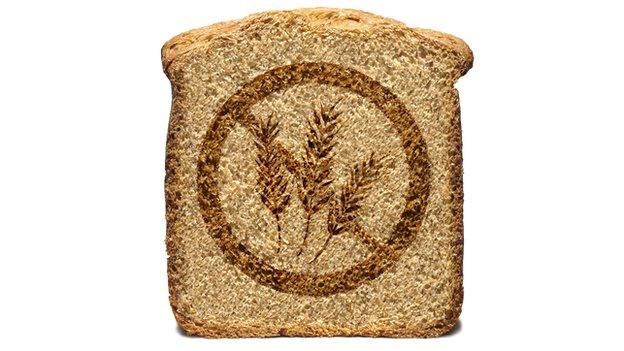Calls to change NHS prescriptions for gluten-free food
- Published
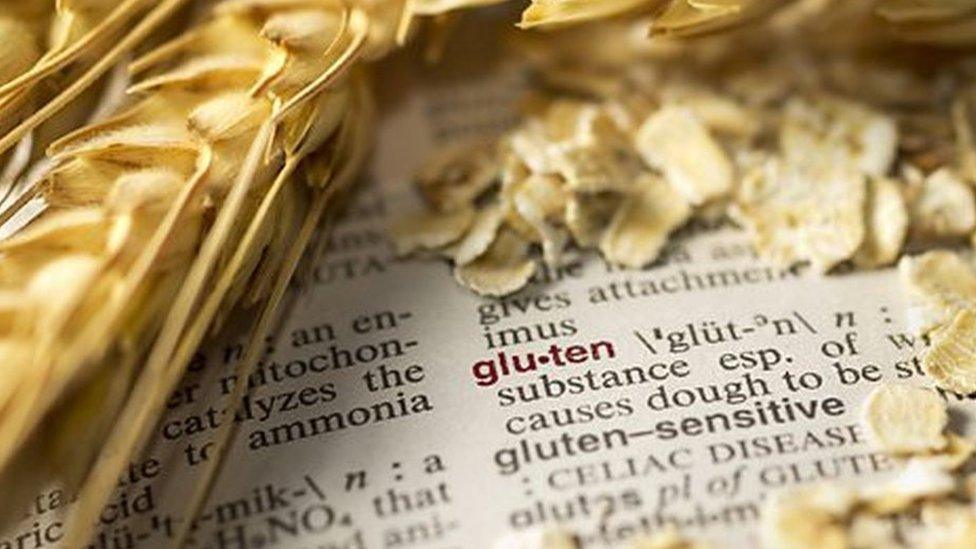
The way gluten-intolerant people are given NHS prescriptions should change, with people given an annual grant, the Welsh Conservatives have said.
People with conditions, external including coeliac disease can get prescriptions for some staple foods.
David Bailey, of the British Medical Association's GPs Committee for Wales, said the system was a poor use of doctors' time.
The Welsh government said prescriptions helped people stay gluten-free.
Welsh Conservative shadow health minister Darren Millar said: "We feel that there should be a different approach which is more efficient in the way that the taxpayer picks up the bill.
"An annual grant scheme of some sort we think is a more appropriate way of dealing with these things."
Dr Bailey, a GP in Caerphilly county, said it was right for people to feel supported by the NHS, but having to visit a GP's surgery may not be what they wanted to do.
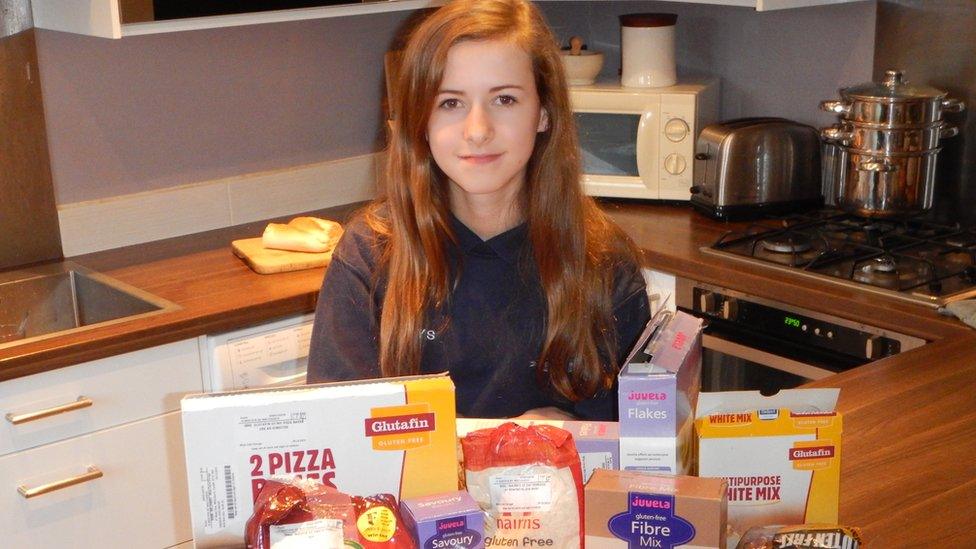
It took seven years for Cerys Davage, now 14, to be diagnosed with coeliac disease
Cerys Davage, who is 14 and from Cardiff, told BBC Radio Wales' Eye on Wales programme she experienced intense pain with coeliac disease.
"Being ill after tea was normal. My stomach would really hurt and I'd have a lot of diarrhoea afterwards and I would just have a constant pain in my tummy for, maybe, a couple of hours," she said.
In England, six areas have scrapped gluten-free prescriptions.
But Tristan Humphreys, of the charity Coeliac UK, said any move away from the prescription system in Wales would be a concern.
"Prescriptions are vastly cheaper than paying for the resultant implications of things like osteoporosis and small bowel cancer in the long run.
"We are looking at just 0.34% of the total prescription budget, which is one of the cheapest treatments for any long-term condition in the NHS."
A Welsh government spokesman said: "Long-term prescriptions should be reviewed as part of the overall assessment of a person's condition, these are not therefore 'wasted appointments'.
"Although the number of commercially-available gluten-free foods has increased in the past few years, pharmacies are an important source of gluten-free produce for many patients."
Eye on Wales is on BBC Radio Wales at 12:30 GMT on Sunday, 28 February.
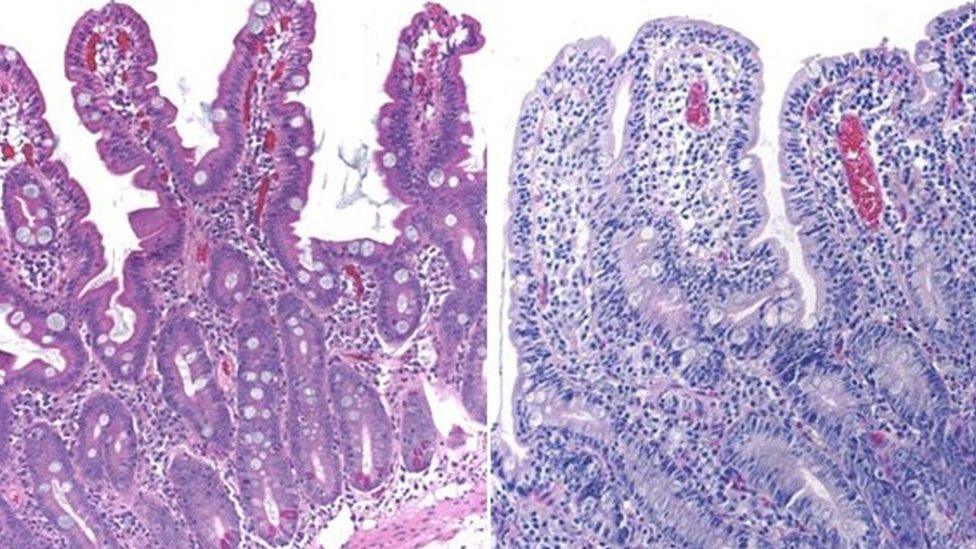
Healthy villi (left) and stunted ones in a coeliac disease sufferer
- Published18 August 2015
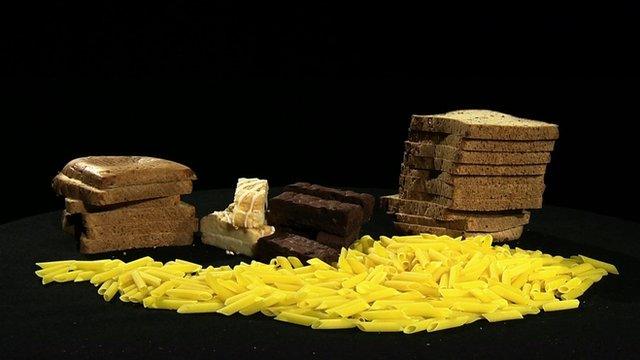
- Published12 May 2014
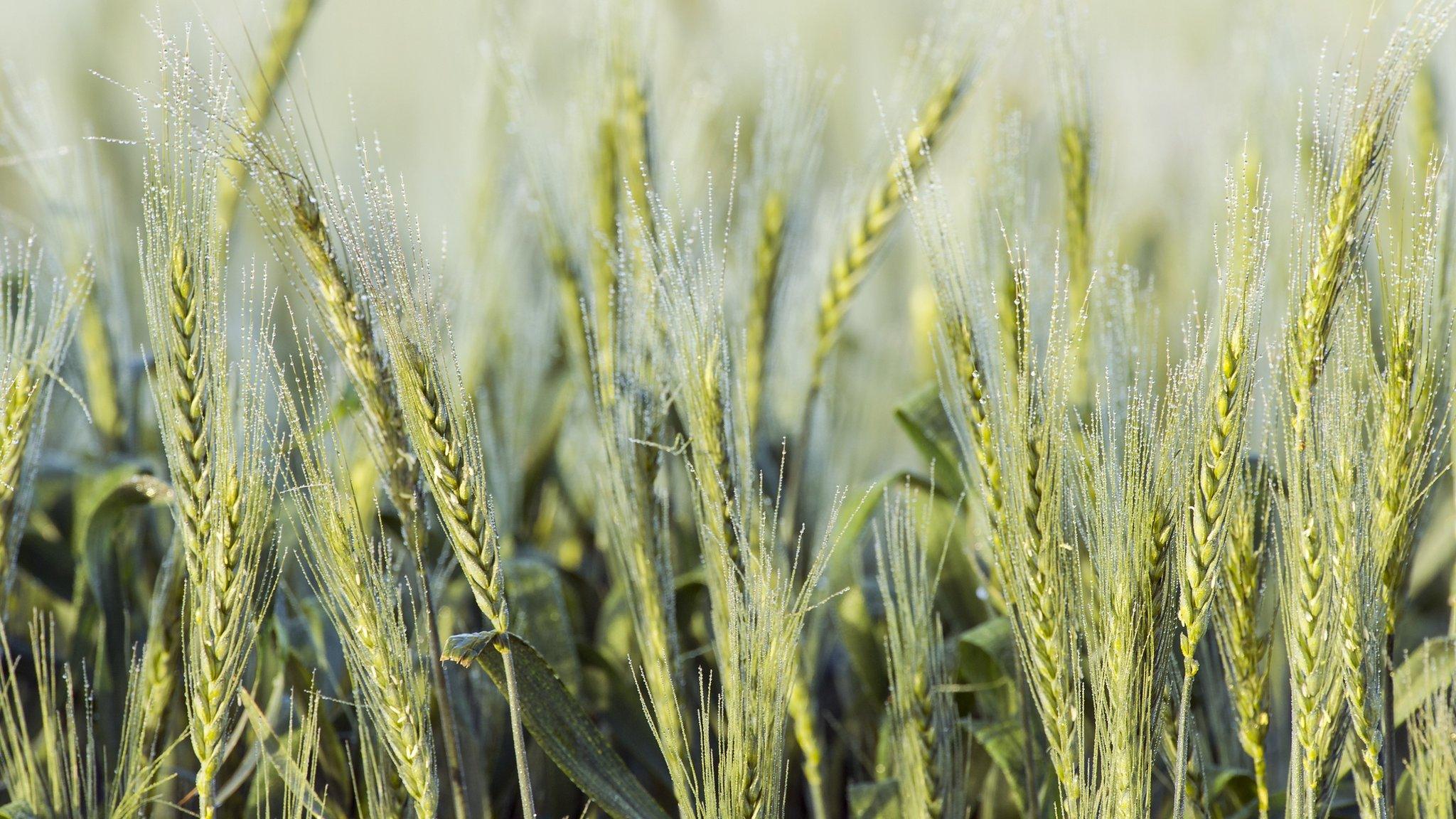
- Published12 July 2015
